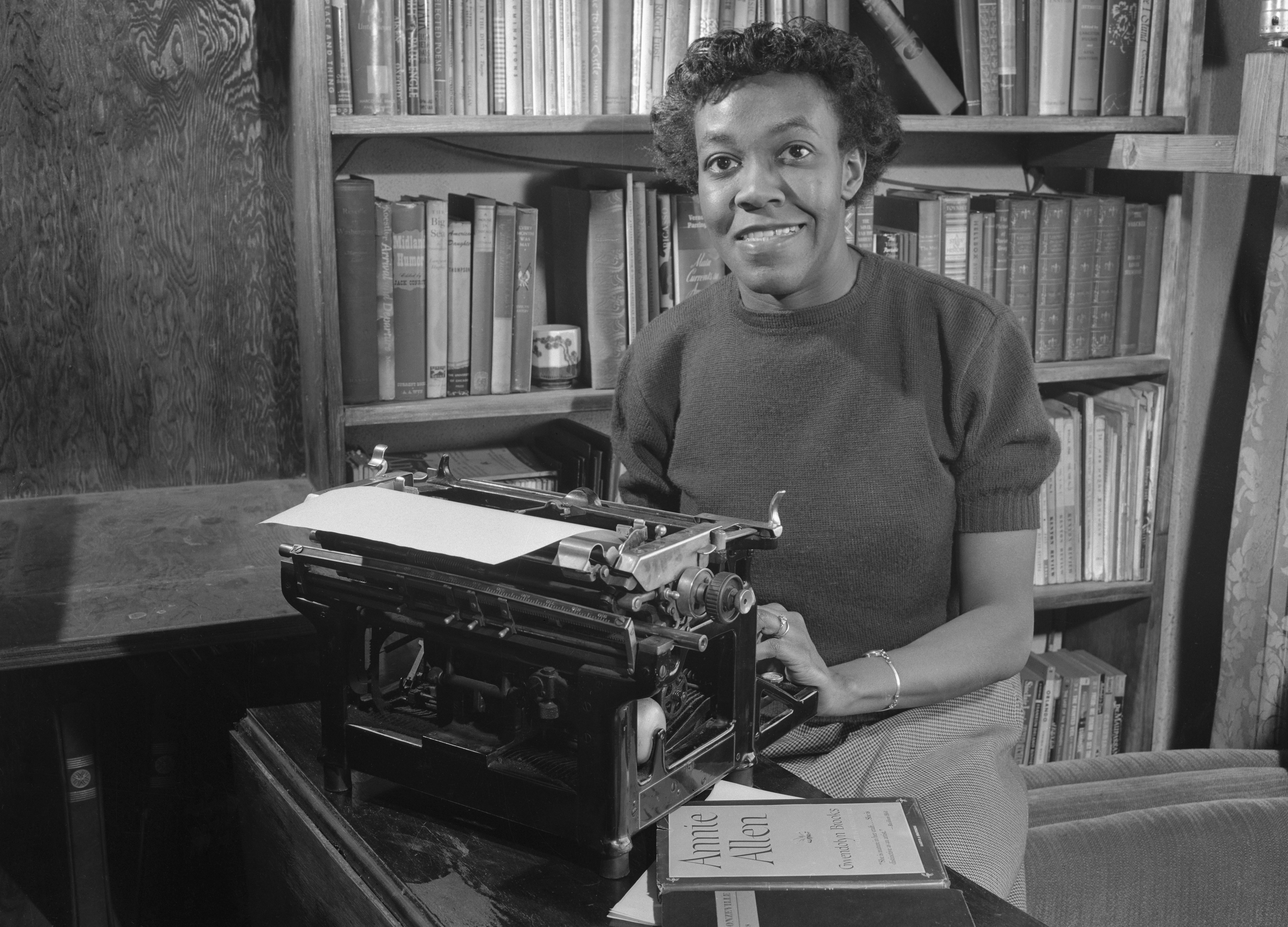Brooks, Gwendolyn (1917-2000), was an American poet. In 1950, she became the first African American to win a Pulitzer Prize. She received the award for Annie Allen (1949), her second collection of poetry. The central poem traces the experiences of a Black girl growing up in America during World War II (1939-1945).

Gwendolyn Elizabeth Brooks was born on June 7, 1917, in Topeka, Kansas, but grew up in the Chicago community called Bronzeville. This neighborhood provided the setting for her first book of poems, A Street in Bronzeville (1945), and for a book of children’s poems, Bronzeville Boys and Girls (1956). In her early poetry, Brooks attacked racial discrimination, praised African American heroes, and satirized both Black and white people. Brooks’s skillful use of short, rapid verse lines and seemingly casual rhymes increases the effectiveness of her biting wit. Selected Poems (1963) includes many of the best poems from her early writing.
The year 1968 marks a dividing line in Brooks’s work. In her writings both before and after 1968, Brooks showed her commitment to racial identity and equality for African Americans. However, in her earlier work, she showed great mastery of classic and Modernist poetic techniques. Her later work became more militant and nationalistic. This verse is written in a style that includes Black language and rituals, and places Black solidarity above the demands of art for its own sake. Her later poetry is represented in such works as Aloneness (1971), Black Love (1981), Children Coming Home (1991), and the compilation Blacks (1987). Brooks also wrote a novel, Maud Martha (1953), and the autobiographical writings Report from Part One (1972) and Report from Part Two (1996). Brooks was the poet laureate of Illinois. She died on Dec. 3, 2000.
